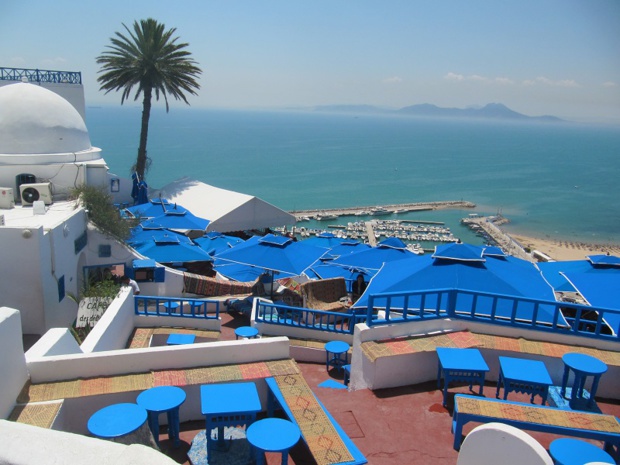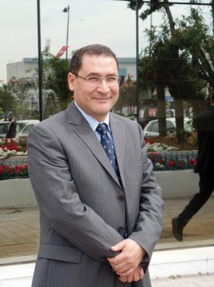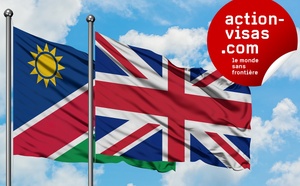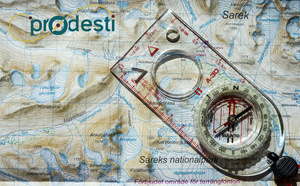
To boost tourism in Tunisia, the General Director of ONTT is thinking about diversifying the offer on the destination - Photo. P.C.
TourMaG.com – The first semester of 2015 is nearing its end. What assessment do you make of this beginning of the year?
Abdellatif Hamam: “There was a before and an after March 18th, 2015 (date of the attack on the Bardo museum in Tunis.) This attack was a real shock for Tunisia.
No one expected such a cowardly act to be perpetuated in a place that symbolizes sovereignty, openness, and 3,000 years of Tunisia’s history.
We feared that this act would be interpreted as an attack on tourists, or foreigners. Thankfully, we were able to quickly turn this true catastrophe into an opportunity to express sympathy towards Tunisia. It has even become a key axis of our communication.”
TourMaG.com - In terms of statistics, what is the impact of this drama on the visitor rate?
A.H.: “After the attack, we feared seeing Tunisia crossed off the list of touristic destinations. Three months later, I can assure that, despite the shock of which we are still suffering the consequences, this isn’t the case.
Right after the attack, there were cancelations but not a wave of cancellations. It is the success of our immediate communication. People understood that no one is completely out of danger, what happened in Tunisia can happen anywhere.
However, reservations were stopped immediately. In March, just before Easter vacations, the rhythm of sales was not on par with the goals we had set.
But since then, we’re observing that the British market is starting to make remarkable performances. The German market is starting again little by little. And the Italian market is remaining, on its hand, quite behind. The recovery is difficult because various Italian citizens were killed during the attack at the Bardo Museum.”
Abdellatif Hamam: “There was a before and an after March 18th, 2015 (date of the attack on the Bardo museum in Tunis.) This attack was a real shock for Tunisia.
No one expected such a cowardly act to be perpetuated in a place that symbolizes sovereignty, openness, and 3,000 years of Tunisia’s history.
We feared that this act would be interpreted as an attack on tourists, or foreigners. Thankfully, we were able to quickly turn this true catastrophe into an opportunity to express sympathy towards Tunisia. It has even become a key axis of our communication.”
TourMaG.com - In terms of statistics, what is the impact of this drama on the visitor rate?
A.H.: “After the attack, we feared seeing Tunisia crossed off the list of touristic destinations. Three months later, I can assure that, despite the shock of which we are still suffering the consequences, this isn’t the case.
Right after the attack, there were cancelations but not a wave of cancellations. It is the success of our immediate communication. People understood that no one is completely out of danger, what happened in Tunisia can happen anywhere.
However, reservations were stopped immediately. In March, just before Easter vacations, the rhythm of sales was not on par with the goals we had set.
But since then, we’re observing that the British market is starting to make remarkable performances. The German market is starting again little by little. And the Italian market is remaining, on its hand, quite behind. The recovery is difficult because various Italian citizens were killed during the attack at the Bardo Museum.”
182,000 French visitors since early 2015
Autres articles
-
 Tunisia: Club Med now removes the destination from its winter 2015/2016 program
Tunisia: Club Med now removes the destination from its winter 2015/2016 program
-
 Tunisia: Marmara is no longer programing Dar Djerba and Palm Beach this winter
Tunisia: Marmara is no longer programing Dar Djerba and Palm Beach this winter
-
 Tunisia: the exit tax will be removed on August 31st, 2015
Tunisia: the exit tax will be removed on August 31st, 2015
-
 Crisis in Muslim countries: travel agents don’t live up to expectations!
Crisis in Muslim countries: travel agents don’t live up to expectations!
-
 Attack in Tunisia: the French persist, sign, and…stay, according to SETO
Attack in Tunisia: the French persist, sign, and…stay, according to SETO
TourMaG.com – And the French market?
A.H.: “It remains the first emitting market for Tunisia despite a long-term trend of decline in the last five years. In 2010, we had hosted 1.4 million French tourists versus around 750,000 in 2014.
On the first 5 months of 2015, we are recording 182,000 French visitors. Meaning close to one third of the European touristic rate in Tunisia.
The French market is starting to get more complex. French people tend to travel more and more in France. And when they go abroad, they look rather towards Spain, Portugal, Greece, or Croatia.”
TourMaG.com - How can we make the French return to Tunisia?
A.H.: “We have to adapt our offer and our strategy to grasp these travelers and develop other market segments. This goes through the development of the open sky, the promotion of weekend stays, or even MICE.
We must also think of different ways of promoting our products. Which must primarily go through digitalizing our communication.
We hope to speak to the French through a “look to book” model: they see the destination, they like it, so they reserve.”
TourMaG.com - Do you also have a BtoB promotion strategy of Tunisia towards French tourism professionals?
A.H.: “We will receive French professionals, tour-operators, and travel agents this June 15th, 2015, with their Union bodies: the SNAV and SETO.
A first meeting took place last April in Paris. Our relations are very good with French professionals. There is a mutual entente. We know that they too have needs and demands. We have to provide them with material, guarantee it, and give them more security information.
We also intensively invested in communication events. This is why we’re hosting “Les Journées de l’Obs" until June 16th, 2015 in the Congress center of Tunis. The goal is to talk about Tunisia in a positive way.”
A.H.: “It remains the first emitting market for Tunisia despite a long-term trend of decline in the last five years. In 2010, we had hosted 1.4 million French tourists versus around 750,000 in 2014.
On the first 5 months of 2015, we are recording 182,000 French visitors. Meaning close to one third of the European touristic rate in Tunisia.
The French market is starting to get more complex. French people tend to travel more and more in France. And when they go abroad, they look rather towards Spain, Portugal, Greece, or Croatia.”
TourMaG.com - How can we make the French return to Tunisia?
A.H.: “We have to adapt our offer and our strategy to grasp these travelers and develop other market segments. This goes through the development of the open sky, the promotion of weekend stays, or even MICE.
We must also think of different ways of promoting our products. Which must primarily go through digitalizing our communication.
We hope to speak to the French through a “look to book” model: they see the destination, they like it, so they reserve.”
TourMaG.com - Do you also have a BtoB promotion strategy of Tunisia towards French tourism professionals?
A.H.: “We will receive French professionals, tour-operators, and travel agents this June 15th, 2015, with their Union bodies: the SNAV and SETO.
A first meeting took place last April in Paris. Our relations are very good with French professionals. There is a mutual entente. We know that they too have needs and demands. We have to provide them with material, guarantee it, and give them more security information.
We also intensively invested in communication events. This is why we’re hosting “Les Journées de l’Obs" until June 16th, 2015 in the Congress center of Tunis. The goal is to talk about Tunisia in a positive way.”
“Tunisia is and must remain a resort destination”

Abdellatif Hamam is the Executive Director of ONTT, since late March 2015 - Photo ONTT
TourMaG.com - Shouldn’t we also change how the destination positions itself?
A.H.: “The new team leading tourism in Tunisia has the will to usher into a new era. And this must go through, in part, the diversification of touristic products.
We must consolidate the segments on which we have a real competitive advantage such as resort stays. Tunisia must remain a resort destination.
But this must not refrain us from developing other forms of tourism based on culture, congresses, sports, or the desert.”
TourMaG.com - Some Tunisian hoteliers complain that there is an imbalance in their business negotiations with tour-operators that leads to a drop in rates, and, in turn, a drop in the quality of services…
A.H.: “I have to nuance this perception. Today, the terrorist acts that took place in Tunisia have an impact on other destinations such as Morocco, Turkey, and Oman Sultanate. They have created a negative perception on any country that could come off as having an “Arab-Muslim” environment.
This situation is leading to a race to make tourists come back to our countries. Meaning affecting the quality of services and dropping rates. I do not want to easily condemn tour-operators by saying that they are always looking to make more profits.
In reality, this is a question of power dynamics and negotiation. Tunisian hotels must also organize, by establishing minimum prices, for instance, to not sell their rooms at extremely low rates.
In fact, some tour-operators clearly told me that they will not ask for additional efforts to their hoteliers because they know that reducing the rates too much will automatically lead to a loss in the quality of services. Which will, in the end, condemn the destination.”
TourMaG.com - And what do you think about some initiatives of hoteliers who are organizing to launch call-centers and Internet websites in order to develop their direct sales?
A.H.: “Today, the key word is innovation. And the commercialization field is not foreign to that. Right now, one tourist out of 5 reserves his or her hotel room directly on Internet. The traditional model of the purchase of vacations in a travel agency is giving way to a new model.
The habits and needs of clients are changing. We must adapt to that. The expansion of air transport everywhere in the world has enabled some destinations to develop.
This is why, I believe that it is important to establish alternative modes to attract the clientele, like some Tunisian hoteliers are doing currently. They must find the right balance in their economic model.
A.H.: “The new team leading tourism in Tunisia has the will to usher into a new era. And this must go through, in part, the diversification of touristic products.
We must consolidate the segments on which we have a real competitive advantage such as resort stays. Tunisia must remain a resort destination.
But this must not refrain us from developing other forms of tourism based on culture, congresses, sports, or the desert.”
TourMaG.com - Some Tunisian hoteliers complain that there is an imbalance in their business negotiations with tour-operators that leads to a drop in rates, and, in turn, a drop in the quality of services…
A.H.: “I have to nuance this perception. Today, the terrorist acts that took place in Tunisia have an impact on other destinations such as Morocco, Turkey, and Oman Sultanate. They have created a negative perception on any country that could come off as having an “Arab-Muslim” environment.
This situation is leading to a race to make tourists come back to our countries. Meaning affecting the quality of services and dropping rates. I do not want to easily condemn tour-operators by saying that they are always looking to make more profits.
In reality, this is a question of power dynamics and negotiation. Tunisian hotels must also organize, by establishing minimum prices, for instance, to not sell their rooms at extremely low rates.
In fact, some tour-operators clearly told me that they will not ask for additional efforts to their hoteliers because they know that reducing the rates too much will automatically lead to a loss in the quality of services. Which will, in the end, condemn the destination.”
TourMaG.com - And what do you think about some initiatives of hoteliers who are organizing to launch call-centers and Internet websites in order to develop their direct sales?
A.H.: “Today, the key word is innovation. And the commercialization field is not foreign to that. Right now, one tourist out of 5 reserves his or her hotel room directly on Internet. The traditional model of the purchase of vacations in a travel agency is giving way to a new model.
The habits and needs of clients are changing. We must adapt to that. The expansion of air transport everywhere in the world has enabled some destinations to develop.
This is why, I believe that it is important to establish alternative modes to attract the clientele, like some Tunisian hoteliers are doing currently. They must find the right balance in their economic model.
“The Open Sky must be useful to our economy”
TourMaG.com - For that, we would need the sky to be open in Tunisia. Where are we with the talks on an open sky?
A.H.: “Tunisia was one of the first countries of the South of the Mediterranean to enact the voluntary opening of its economic space to the European Union in 1995. Today, we cannot go backwards.
Our national airline company, Tunisair, is going through a difficult moment and the national community doesn’t want to sacrifice it. It claims having public support to get it back to the level, modernize its fleet, and improve its competitiveness.
It is only then that we will be able to establish the Open Sky in Tunisia. The experience of other countries who did it before us shows that if we don’t prepare ourselves well, we could suffer the consequences of this open sky.
However, it can be useful to open up little by little to bilateral agreements with airports that are not well served. This is what we did recently with easyJet on Enfidha.
We want to control the pace of opening the sky for it to be useful to our tourism and economy.
TourMaG.com - Can you comment on the removal of cruising stops in Tunis?
A.H.: “Cruising companies never decided to fully eliminate Tunisia from their programs but only to pause their stops momentarily while waiting to hear about security insurances.
We understand this position perfectly and we respect it.”
TourMaG.com - To stay on the theme of safety, it was recently announced that it will be mandatory for Tunisian hoteliers to set up security check-points. Where are we now with this measure?
A.H.: “A committee of safety management with the Interior Minister and the Tourism Minister has set-up interactions for the establishment of urgent measures. For the moment, they are more or less respected by hotels in the country. Everything also depends on their financial situations and technical possibilities.
But we are following the evolution of the situation every day. We congratulate those who have already made the effort, and we are trying to convince others to do it as quickly as possible.
It is a necessary measure of which the efficiency will depend on a complete monitoring environment to recognize and respond quickly to all threats.”
A.H.: “Tunisia was one of the first countries of the South of the Mediterranean to enact the voluntary opening of its economic space to the European Union in 1995. Today, we cannot go backwards.
Our national airline company, Tunisair, is going through a difficult moment and the national community doesn’t want to sacrifice it. It claims having public support to get it back to the level, modernize its fleet, and improve its competitiveness.
It is only then that we will be able to establish the Open Sky in Tunisia. The experience of other countries who did it before us shows that if we don’t prepare ourselves well, we could suffer the consequences of this open sky.
However, it can be useful to open up little by little to bilateral agreements with airports that are not well served. This is what we did recently with easyJet on Enfidha.
We want to control the pace of opening the sky for it to be useful to our tourism and economy.
TourMaG.com - Can you comment on the removal of cruising stops in Tunis?
A.H.: “Cruising companies never decided to fully eliminate Tunisia from their programs but only to pause their stops momentarily while waiting to hear about security insurances.
We understand this position perfectly and we respect it.”
TourMaG.com - To stay on the theme of safety, it was recently announced that it will be mandatory for Tunisian hoteliers to set up security check-points. Where are we now with this measure?
A.H.: “A committee of safety management with the Interior Minister and the Tourism Minister has set-up interactions for the establishment of urgent measures. For the moment, they are more or less respected by hotels in the country. Everything also depends on their financial situations and technical possibilities.
But we are following the evolution of the situation every day. We congratulate those who have already made the effort, and we are trying to convince others to do it as quickly as possible.
It is a necessary measure of which the efficiency will depend on a complete monitoring environment to recognize and respond quickly to all threats.”



























![Le bien-être : une croissance spectaculaire et continue [ABO] Le bien-être : une croissance spectaculaire et continue [ABO]](https://www.tourmag.com/photo/art/large_16_9/93852662-65524623.jpg?v=1769430482)















